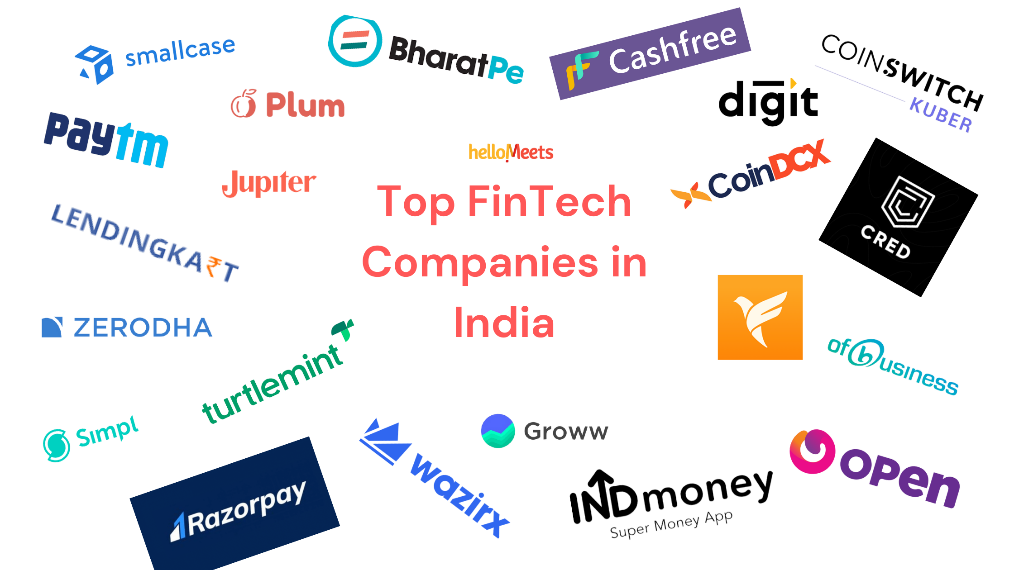Description

Disclaimer: Copyright infringement not intended.
Context
- The Standing Committee on Communications and Information Technology recommended promoting local fintech players in India.
Details
- Concerns Raised: The dominance of fintech apps owned by foreign entities in the Indian ecosystem was a key concern.
- UPI's Market Share: The Unified Payments Interface (UPI) commanded a 73.5% share of total digital payments in terms of volume in FY 2022-23, but its share in terms of value was only 6.67% in the same period.
- Regulation: The Committee emphasized the need for effective regulation of digital payment apps, stating that it would be more feasible to control local apps compared to foreign apps.
- Fraud Concerns: The Committee observed concerns about fintech companies being used for money laundering, citing an example of an Abu Dhabi-based app called Pyppl.
- NCPI Regulations: The National Payments Corporation of India (NCPI) issued a 30% volume cap on transactions facilitated using UPI, with compliance timelines extended to December 31, 2024.
- Impact on Ecosystem: Experts suggest a balanced mix of local and foreign fintech players to serve the Indian ecosystem, emphasizing the criticality of accountability and compliance with local laws.
- McKinsey's Observation: McKinsey's Global Payments Report noted that instant payments in India were expected to contribute less than 10% of future revenue growth due to no fees being charged for UPI, although it highlighted the uplift in revenues from no-fee cash events and the increased security and access to digital commerce channels.
- Conclusion: The promotion of local fintech players and effective regulation are crucial for the growth and stability of the digital payments ecosystem in India.

Fintech, or Financial Technology
Fintech, or Financial Technology, refers to the use of technology to deliver financial services. It encompasses a wide range of applications and innovations that aim to make financial services more efficient, accessible, and affordable. Fintech companies leverage software, algorithms, and other technologies to provide services such as online banking, peer-to-peer lending, crowdfunding, digital payments, and robo-advisors.
Key aspects of fintech include:
- Digital Payments: Fintech companies offer digital payment solutions that enable users to transfer money electronically, make online purchases, and manage their finances.
- Peer-to-Peer Lending: Platforms connect borrowers directly with lenders, bypassing traditional banks, and offering potentially lower rates for borrowers and higher returns for investors.
- Blockchain and Cryptocurrency: Blockchain technology is used in fintech for secure transactions, smart contracts, and cryptocurrency development, such as Bitcoin and Ethereum.
- Insurtech: Fintech solutions in the insurance sector, known as insurtech, offer digital insurance products, claims processing, and risk assessment.
- Robo-Advisors: Automated investment platforms use algorithms to provide financial planning and investment advice, often at lower costs than traditional financial advisors.
- Regtech: Regulatory technology helps financial institutions comply with regulations by automating compliance processes, monitoring transactions for fraud, and ensuring data security.
Overall, fintech is transforming the financial services industry by offering innovative solutions that improve efficiency, accessibility, and transparency.
Examples of Fintech Companies in India:
- Paytm: A leading digital payments platform that offers a range of services including mobile recharges, bill payments, and online shopping.
- PhonePe: A UPI-based payments app that allows users to send and receive money, pay bills, and make online purchases.
- Google Pay: Another popular UPI-based payments app that enables users to make payments, recharge mobile phones, and pay bills.
- Policybazaar: An online platform for comparing and purchasing insurance policies, including health, life, and motor insurance.
- Zerodha: A fintech company that offers online brokerage services for trading in stocks, commodities, and mutual funds.
- Lendingkart: A platform that provides quick and easy access to business loans for small and medium enterprises (SMEs).
- Razorpay: A payment gateway that allows businesses to accept online payments through various channels such as credit/debit cards, net banking, UPI, and wallets.
- CoinSwitch Kuber: A cryptocurrency exchange platform that allows users to buy, sell, and trade a wide range of cryptocurrencies.
Benefits of Fintech Companies:
- Convenience: Fintech companies offer digital solutions that are convenient to use, allowing users to access financial services from anywhere, at any time, using their smartphones or computers.
- Cost-Effective: Fintech services are often more cost-effective than traditional banking services, with lower fees and charges for transactions and services.
- Financial Inclusion: Fintech companies are helping to promote financial inclusion by providing access to financial services to underserved and unbanked populations.
- Efficiency: Fintech solutions are often more efficient than traditional banking processes, reducing the time and effort required to perform financial transactions and manage finances.
- Innovation: Fintech companies are driving innovation in the financial services industry, introducing new products and services that improve the customer experience and meet evolving needs.
- Accessibility: Fintech services are accessible to a wide range of users, including those in remote areas or with limited access to traditional banking services.
- Personalization: Fintech companies use data analytics and artificial intelligence to personalize their services, offering tailored solutions based on individual needs and preferences.
- Security: Fintech companies invest heavily in cybersecurity to protect customer data and transactions, providing a secure environment for financial transactions.

Concerns:
- Regulatory Compliance: Fintech companies operate in a complex regulatory environment, requiring them to comply with various financial regulations. Ensuring compliance can be challenging, especially for startups with limited resources.
- Data Security and Privacy: Fintech companies handle sensitive financial information, making them prime targets for cyberattacks. Ensuring robust data security measures and compliance with data protection regulations is crucial.
- Operational Risks: Fintech companies rely heavily on technology for their operations, exposing them to risks such as system failures, glitches, and outages. Implementing effective risk management strategies is essential to mitigate these risks.
- Fraud and Money Laundering: The anonymous nature of digital transactions increases the risk of fraud and money laundering. Fintech companies need to implement stringent identity verification and anti-money laundering measures.
- Lack of Consumer Trust: Despite the convenience and efficiency offered by fintech companies, some consumers are hesitant to adopt fintech services due to concerns about security, reliability, and privacy.
Way Ahead:
- Regulatory Clarity: Regulators need to provide clear guidelines and regulations for fintech companies, ensuring a level playing field while promoting innovation and competition.
- Enhanced Security Measures: Fintech companies should invest in robust cybersecurity measures, including encryption, multi-factor authentication, and regular security audits, to protect customer data.
- Collaboration with Regulators: Fintech companies should work closely with regulators to ensure compliance with regulations and to address any regulatory challenges.
- Education and Awareness: Educating consumers about the benefits and risks of fintech services can help build trust and confidence in the industry.
- Industry Standards: Developing and adhering to industry standards for data security, privacy, and customer protection can help improve the overall credibility of the fintech sector.
|
PRACTICE QUESTION
Q. Discuss the regulatory challenges faced by fintech companies in India. What measures can be taken to address these challenges and promote the growth of the fintech sector in the country?
|











